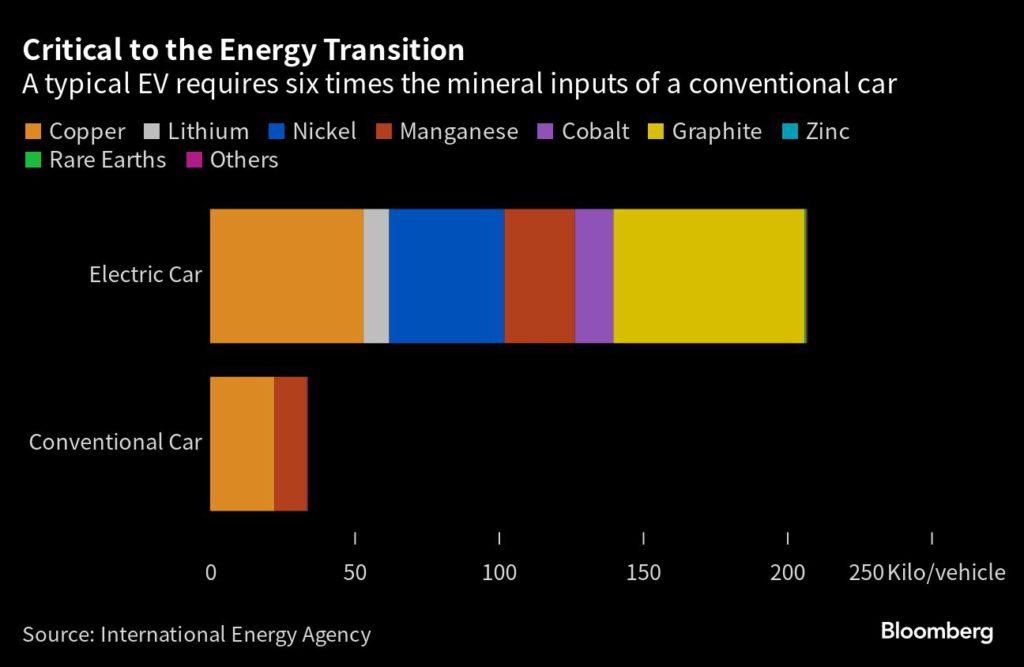US Energy Secretary Jennifer Granholm said the world is up against a dominant supplier of critical minerals that is willing to exploit its position for political gain, in remarks apparently aimed at China, and warned that energy security will become increasingly complex due to the transition to cleaner power.
The remarks to high-level government officials, executives and academics came Thursday in Paris at the International Energy Agency’s first-ever meeting about critical minerals. Granholm and other speakers repeatedly implied that one country — China — controls much of the world’s processing of materials used in everything from electric vehicles and wind turbines to missile guidance systems.
“In this critical minerals and materials context we are up against a dominant supplier that is willing to weaponize market power for political gain,” Granholm said. “But our global energy crisis has taken on a new dimension, which is the urgency of this clean energy transition.”
Energy security will become more complex over the coming decades as countries require more of the nickel, cobalt, lithium and other materials needed to cut down on global emissions, she said.

The closed-door meeting brought together energy and mining minsters from some 50 countries around the world, in addition to chief executive officers from the world’s largest mining companies and experts in the field of critical minerals. Attendees said the event holds symbolic importance, and formalizes how serious a threat its members view China’s outsized position in critical minerals.
Granholm and other speakers didn’t explicitly identify China by name in their comments, but the Asian nation is known to dominate the entire value chain of many key minerals. China accounts for more than half the world’s production of battery metals including lithium, cobalt and manganese, and as much as 100% of rare earths.
“When we look at both the production and the refining, processing of the critical minerals we see a very high level of concentration,” IEA Executive Director Fatih Birol said in opening remarks to the conference. “Looking at the history of energy in the last 100 years, when there was major concentration of one single country, one single company, one single route, there’s always a challenge.”
The US passed sweeping legislation the last few years that would pour billions of dollars in subsidies and tax incentives to boost domestic supply of the materials and batteries needed to shift to an electric fleet of automobiles.
And this past summer, the US Defense Department issued a first-time contract to American or Canadian companies by year-end to recover gallium, a mineral used in semiconductors and military radar systems, after China announced restrictions on the mineral that were seen as part of the country’s tit-for-tat trade war on technology.
(By Joe Deaux)


